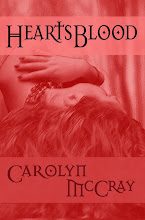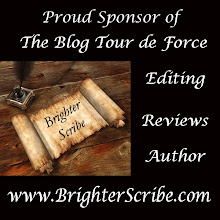Sunday, July 24, 2011
Blog Vacation...
Sunday, June 26, 2011
Writing... The End Result

#woot #woot
But then what?
In the olden days (read three years ago), you shopped this manuscript around to agents and publishers and crossed your fingers that it sold. If it didn't... um... #crap That manuscript was dead in the water. You might as well stash it in a drawer, weep softly then start writing the next one (whose fate more than likely would be the same).
Oh sure, you could VANITY PRESS. But, um, with a name like that and the stigma attached to it, who wanted to do that?
Then the digital revolution happened. Amazon.com opened wide its 'doors,' inviting anyone to publish.
At the same time readers began flocking to digital books and avoiding the traditional brick and mortar stores (hence why Borders is practically out of business and Barnes and Noble is being sold).
The shift in the publishing world cannot be overstated.
And the biggest beneficiary, beyond the reader who now can shop from the comfort of their living room and start reading within moments of purchase? The indie author.
Me. You. All of us.
Now I know there are a lot of stiff backs right now and hackles up, and sure last year we could have argued the merit of self-publishing, but now? Now that the houses are clamping down on purchasing ANY books by new authors? Now self-publishing is nearly your only option.
The Big 6 and every small publishers is hemorrhaging right now. Privately they talk about "catastrophic" declines in sales.
There has never been a worse time to try and sell a book. And try to get a house to fork out any advertising money? Darlin', they just don't have it.
So indie it is... or... you know... store your manuscript's file on your harddrive and start writing the next one.
Luckily, many have gone before us though and shown the way and I have had a pretty good run of sales the last year (far better than the VAST majority of published (even mid-list authors) I know ($20,000 and counting this year so far).
And this week the book I wrote with my fellow Indie Book Collective's Co-founders, Amber Scott and Rachel Thompson...
"Dollars & Sense: The Definitive Guide to Self-Publishing" is launching.
"Dollars & Sense" can take the indie publishing neo-phyte from manuscript to publication, using a step-by-step method. The book walks you through making sure your work is in publishable shape, to formatting, to learning social media, to how to potentate your book sales.
And the best part? Thru June 29th it is just 99 cents! Crazy right? A total blue-print for indie publishing success for less than a buck!
So if you have any hopes and dreams about publishing (even if you go traditional publishing, you are going to need to know all this info since your house EXPECTS you to know how to use social media etc to gain name recognition), hop on over to Amazon and pick up your copy! #now #Imeanit :-)
Sunday, June 19, 2011
Beating the Drama of Writer’s Block
 To create better drama in your writing, you need to beat the drama of writer’s block.
To create better drama in your writing, you need to beat the drama of writer’s block. This may be obvious. But when your curser is sitting on a blank page taunting you with the repetitive blinking and your mind spins and lurches, sifting through everything and settling on nothing, writer’s block can be debilitating.
So, how do you beat it?
I’ll tell you a secret that may make you hate me.
I never get writer’s block.
Now, don’t get me wrong, I definitely get lazy, or distracted, or addicted to tweeting. I have many things that keep me from writing. But I never get blocked.
How?
I shall fill you in on my dirty little secret.
The Games We Play As Children
My brother and I have this game we play. I now play it with my fiancé, who is also a writer. (And no, not THAT kind of game. Get your minds of the gutter!)
How does it work?
1. Pick a subject, any subject.
2. Then pick a genre. (poetry, short story, scene, essay, anything you want!)
3. Now, TIME IT! You and your partner (or partners) decide on a short time (1-3 minutes) and write about what you picked.
4. Finally, share and laugh.
A real life example.
The Subject: A woman in a living room, naked with a gun.
The genre: scene
The results…
My brother Neil wrote a scene about a woman who was using her gun for some special time when… oops! It went off!
I wrote a scene in which a woman was pregnant, trying to give herself an abortion in a very unlikely way. #itdidntwork
Now, say what you will about our mental stability, we rocked those stories and went on to write more. Poems about cigarettes. The alphabet as a story. A Dear Mom letter from camp. (You DO NOT want to know what my bro did with THAT one!)
You get the idea!
Why this works.
These games free up your creative muse. They get you thinking about things in a new and fun way and force you to write from a new perspective.
They also break you out of any block.
These games stood me well when I went to college and had deadlines for papers.
They saved me when I wrote professionally for newspapers. When you are on deadline of a few hours to get a front page news story in, you don’t have time for blocks.
The truth is, we don’t really get blocked at all. We just get trapped in our own minds, over-thinking what should be a creative process.
By playing with our muse, rather than forcing it, we free ourselves to be the creative genius we most desire.
So get out there and play! If you don’t have a partner, play with yourself. #again #mindoutofgutter
Your muse will thank you. And so will your readers.
Kimberly Kinrade is a Young Adult fantasy author whose first book, "Bits of You & Pieces of Me," was not YA, but rather a collection of short stories, poems and essays that tell the tale of a young girl in love with love who discovers the demon of a splintered heart when that love turns violent.
Watch for her YA fantasies, Death by Destiny and The Reluctant Familiar this fall! Find her on Twitter, Facebook, or her website. She also writes a blog for Lifarre, the new women’s network, and is a staff member for the Indie Book Collective
Sunday, June 12, 2011
Setting with Feeling
A Guest Post By Dmytry Karpov
Things to Remember
A setting isn’t a place, it’s a character. Too often, writers describe what a location looks like and move on. The prose, if beautiful, may be memorable, but the setting will be flat and forgettable. Even action scenes deserve arenas, so locations deserve word count. With these three tips, make your settings three dimensional.
Add Drama
Atmosphere: You’ve probably learned about it in English class. (And no, it’s not the thing that floats around our planet. Homonyms, people!) It is the feel of a setting. It is the sum of sensations it creates. In order for a setting to have atmosphere, its descriptions must hint at mood.
If the room is dark, the walls peeling and covered in webs, feelings of decay and darkness are achieved. Add a little blood, and an atmosphere of horror is created. Mention a sunny day, and sensations of warmth arise.
Every detail helps create or destroy atmosphere. If present, it will pair your setting with an emotion, be memorable, and enhance your scene. It will draw sensations from your characters and readers. Atmosphere gives setting emotion. History gives it depth.
Dig Deeper
History: (Not the tedious heavy textbook kind.) Every location, unless absolutely and unrealistically untouched, has it. There are coffee stains on the table within a family’s home. There are pictures on the wall within a child’s room. Castles are built upon old ruins, marked in a language long forgotten. Space ships are covered in posters put up by the crew.
Such details make setting a character. They create interest, mystery. They allow the setting to change and grow. Not only can it have feelings and depth, it can affect people.
Don't Forget Action
Life: Most settings are filled with it. Drunks cheer at a bar. A spider crawls across the floor. Engines roar. Children laugh. A bird sits on the windowsill. A mouse sits in the corner. In fantasy, trees and rock may come alive. In Science-Fiction, computers may beep and talk.
Settings can move. They can change. They can affect characters and demand responses.
Don’t make your setting a place.
Make your setting a character. Make it important.
----------------------------------------------------------------------------------
Dmytry Karpov is an Adult Fantasy writer tired of cliches and girl-meets-vampire plots. His first book, The Nemean Lion, is set in a post-apocalyptic world where both zombies and fairytale creatures exist. And Ann, a fierce girl trying to return home, sets out on a quest with a leprechaun. Of course, she would have preferred a vampire, but not everyone's that lucky.
Dmytry is also the editor of numerous published short stories. Find him on Twitter and Facebook
Sunday, June 5, 2011
Losing yourself in your writing

A Guest Post by Nai'lah Carter...
As a writer, you have to become one with your story but also know when to step away from it. You have to give yourself time to write but also time to be, you. Even though the writer and individual are two in one, each needs breathing space.
When you write,
- Live your characters—know who they are, their likes, dislikes and the way they would react in different circumstances.
- Write the story the way it comes to you.
- Don’t stop writing to edit or worry about logics. Allow your characters to tell their story.
Now, the story is completed and you’re excited to see the final product. Find something to do—knit or delve into a new book then return to your story. As you read it, even though you’re the author you are bewildered at the turn of events. Edit your story and assure that all dots are connected. If possible, have someone else read it.
What’s worst than a writer being his/her own critic? A writer trying to change the story their muse presented to them. “I don’t like the ending…let me change it.” STOP! Let your story breathe. This is the hardest task to ask a writer to perform but—remove yourself from your work and allow your story to, be. I can guarantee you, you will see how wonderfully flawed your characters are and they way they took control.
Often times the individual is broken into greater sub-sections: spouse, sibling, daughter, friend, and so on and the writer struggles to find time to devote to his/her work. The solution is simple in theory but not practicality. Every writer should:
· Schedule writing times.
· Give yourself deadlines
· When life’s emergencies come into play, your writing becomes secondary. In order to adhere to your deadlines, utilize your next ‘writing hours’ to make up for lost time.
· Pay attention to what you’re doing as opposed to what you didn’t get a chance to do. No matter how minute it may seem; you’re being productive.
If this is your dream, fulfill it by executing! Here’s where support comes in. Your family and friends should understand your goals—long and short term. However support should be reciprocated, just as your friends and family support you, you have to allot time to be there for them. Just as you find time to write, you must find time for them. Do not allow yourself to become so enthralled into your work that you lose yourself in it.
When you’re writing, write. When you’re working, work. When you’re spending time with your family, be there in action and thought. In addition you also need, ‘you’ time. Allow your, self to serve precedence over, The Writer. Hard work pays off but everyone needs time for him/herself. Ample rest is as important as producing material. It is critical to make time for each role you play to preserve sanity.
Wishing you all the best,
Nai’lah.
Sunday, May 22, 2011
Writing the Drama with No Drama, guest post from Christopher Alexander

Ironic? Hypocritical? Really doesn't make any sense,
right?
Well, the fact is that most things in life that we do
end up with some sort of consequence and we always
hope for the best and never the worst.
Writers, my peers, do you know why the stereotypical
writer is a "tormented soul" fast-bound to some sort
of short life over loaded with cigarettes and whiskey?
Well, as someone once said, "we kill ourselves as the
price we pay for playing God in our creations."
Sounds epic, doesn't it? And not the Ke$ha (insert
eye roll for word-generalization) kind, but think of
it, why do we think we have to be so tortured and
conflicted?
As Carolyn has stated time and time again, as a writer
you are not your character. But, let me tell you, as a
writer you must ask yourself if you write for
entertainment or closure.
Sounds strange, right? Heh, maybe even freudian..?
Anyway~
The reason why I've boiled it down to those two areas
is because a writer who writes for entertainment is one
who is going to write for fun, think of funny/crazy and
things they find really interesting. The other kind of
writer, the bull's eye-hit or miss are those who write
as a way to cope and deal with something going on in
their life. Which is why the character(s) and story
are really awesome and powerful or... really awful
and emo.
The tricky part is, figuring out how to master that
emotional vulnerability and make it detached from you.
I started out writing for fun, I had been writing dumb
little stories since I was in elementary school and
picked it up again towards the end of high school. The
thing that very few people, if any picked up on, was
that some thought I was writing about me and my
situations that were going on at the time. After all,
it was high school. When was drama not involved?
Anyway, I think you get the point, and I never knew why
someone would even think that.
After a good while I realized I was writing for closure
but not the characters as myself and the people involved,
but I wrote the situation as a way to deal with it in my
own life. I even had a professor say that she did the
same thing when her daughter had to go over seas with her
husband for work, which made her really scared.
See? We all tend to do that at some point but there is
a point in which being too involved within that self-
created coping mechanism that suffocates the story you've
already began telling. Of course that means the readers
and the story pay the price because you were too involved,
which means the story became about you and no one else
to be able to enjoy, relate, and read.
We use anything and everything in our disposal to create
our own work of art, a story, book, poem, or something
along those lines that requires creative energy and just
a little bit of our soul for art. But we should write
only what we know, right? Its the best way to be
trustworthy for the reader, but if we know dramatic and
traumatic situations then we can write about them, right?
Of course! I encourage you to do so because already
you're going to have a flow of conflict to carry the
story along. And that's what makes things interesting,
the conflict!
You always have to remember what your audience wants to
read, that's if you have an audience already reading your
work. If you don't have an audience yet, time to think of
what your target audience is and pull the trigger!
Being detached once you get started with your drama (in
the story of course), prevents hitting the hurdles
head-on of, "oh crap, this is me. I couldn't do these
things, why should that character do them?" Or, "this
hits too close to home... my own drama isn't over, how
can I ever wrap this story up?" Or better yet, "I give
up... why put this character through what I'm going
through. Its not fair for me and not for them."
Don't they really sound awful?
I think we've all bumped into those hurdles and really
hit the dirt and then the guilt hits us from starting
something and then axing it. Or better yet, the story
keeps going on and remains in the "planning" stages
that is itching to come forth and live.
That's why its important to remove yourself in order
to let the story flow on its own course and be the
middle-man just telling it as best you know how!
And like Carolyn has always said, no one knows your
story but you.
Now, write from the heart, tweak with your wit, and
edit with your audience in mind.
Use your drama to remove the drama in writing it!
Saturday, May 14, 2011
Rise and Fall

Yep, I am back after a brief sabbatical of trying to get not 1 but 3 books into publication shape!
I have also been doing a lot of writing coaching and as always I have sensed a pattern common to newer writers and I felt like everyone (even authors 5-100 books in have to remind themselves of this) could use a little reminder of making sure your writing has rise and fall.
What do I mean by that?
Simple. Your writing should breathe...
There are times when you will take quick, short breaths. Other times you will sigh gently.
Through out the book, section, chapter, paragraph and even sentence your writing should have a sense of movement.
You need to be not only going somewhere with it, but going with purpose.
Another analogy would be the make sure your writing is shaded. Not everything should be black and white. Especially your character's motivations. There should be a million shades of gray in there.
I know, I know... easier said than done.
But not really. You can truly breath life into a paragraph just by making sure that your sentences are not all the same length (and therefore the thought process behind them). Make sure that either external or internal dialogue rises from the character and not just from you. Make sure your prose is written through the eyes of the SPECIFIC character that you are in their POV.
Normally by applying these simple criteria, you can really get your writing MOVING :-)
Example:
The bedroom's walls were a dull white whereas the carpet was a light beige. There were not many knicknacks on the dresser however the closet was full to near bursting. All manner of clothing, shoes, and sports equipment threatened to tumble out at any moment.
Explanation:
There is nothing really wrong with the above paragraph, except of course it is told in passive voice. However, beyond that it is monotonous and lacks any rise and fall.
Rewrite:
Dull, dull, dull. The walls, the carpet, even the bedspread looked like they had been washed in the same dirty creek. Even weirder the dresser was so spare it felt Spartan yet the closet was like a level-5 Hoarding situation. Who the hell lived like this?
Can you feel the difference? The difference in sentence structure. The difference in SPECIFIC language and an internal POV evident.
How about you test your rise and fall. Go pick a random page. Point out at least 5 places where you demonstrate movement and draw the reader in.
Feel free to comment below with a sample and I will swing by and critique it if you like!
#Goodtobeback :-)
Sunday, May 8, 2011
Going Crazy for Character, a guest post from @actingnodrama

The first thing I'm going to say about character I'm sure will raise a couple of eyebrows. Characters don't really exist.
Now before you go all postal on me, stop for a moment. I'm not saying character isn't important, or that I don't love character work, or that everything you've been doing up to this point with your character development isn't worthwhile. Not at all. I'm an actor, fercryingoutloud. Of course I think character work is vital to what we're doing as writers.
What I'm saying is that sometimes, in our quest to make our characters "real" we forget that they... well... aren't. They are two-dimensional constructs made up of black characters on a white page (typically... and typographically... speaking). Can they feel real? Absolutely. Can they begin to act and speak for themselves in our work? Hopefully.
And...
Along with that, I think it's good for us to remember that our characters are capable of an almost limitless range of choices. We sometimes box them in with our desire to be "realistic". We don't allow our characters to truly surprise us. And while characters should be consistent, one of the truly consistent things about real people is that they have the ability to change. Sometimes rapidly. There's always motivation for the change, but that change can be quite shocking, both to outside observers and even to the people themselves.
Use some caution here--I'm not talking about the writer's hand. In other words, don't just make your character do something because you need them to, regardless of motivation or established character traits. What I'm discussing is allowing characters to go in unexpected directions. Allow them to surprise you.
Because as much as surprises in real life may not appeal to everyone, in fiction they are GOLDEN. :)
Ben Hopkin (@actingnodrama) is an actor, as well as a writer, director and producer. He teaches online acting classes, and hosts an online radio show on Thursday evenings at 8pm PST. If you're interested in acting, you can check out more of his ideas at www.actingwithoutthedrama.blogspot.com.
Sunday, May 1, 2011
Cheerleaders, a guest post from @MelissaTRomo

About the time I started writing my first novel, a friend of mine, who had been working on her first, was just starting to swim in the dissolving bits of her marriage. It turns out that she was married to a person I call the “anti-cheerleader.” Maybe he thought he was being helpful, but he wasn't. You can't do this. It's a long shot, you shouldn't really try. When are you going to move on to something else? I don't want you to be disappointed.
When we met recently to catch up, she marveled that I was at the point of being able to pitch my novel to agents. She had never gotten that far. How did you ever do it? she asked. Guiltily, I immediately knew the answer and didn't really want to confess it to her. It had nothing to do with me being a better writer, or more disciplined. I just had this ace in my corner: a spouse who knew how to be a good cheerleader.
Whenever I tell my friends that he's the reason I was able to finish a novel, they all offer a that's nice kind of smile. That can't be the only reason. But, really, I'm here to tell you it is. The voice of the spouse or significant other is insanely loud, for good or ill. Her novel was in a drawer. Mine was ready to pitch.
Why do the cheerleaders and anti-cheerleaders in our writing lives have such an impact? For me, it had something to do with staying on the course I set for myself. There are moments during my writing life when I definitely start scanning the room for the exit. It's not because I don't like writing. I love it. Stringing together words that work just right is the best drug there is.
But sometimes writing can seem just plain difficult, and rewards and validation only seem to come so often. I hate to admit it, but sometimes the question Why am I doing this? does enter my mind. I can't tell you how many times I've called my husband, reciting a posting for a “real job” from Monster.com. But he knows I want to write, so he hangs up on me.
When a writer has those moments when they might want to throw in the towel, that’s when cheerleaders make the difference. Even by hanging up. Spouses, significant others, friends, family, whoever.
But like I said, the spouse’s or significant other’s voice in particular is insanely loud and powerful. This person tied their life to mine. They must know something I don't know.
I thought about myself in those moments of doubt and having the anti-cheerleader saying things to me like what my friend's husband said. I would have headed for the exit in the first five minutes. A lot of good, talented people would have. Like any long, lonely race, writing can challenge your fortitude. Like a long-distance runner, you might hear a little voice that says Owww, this hurts. When can we take a break?
But I got very, very lucky. Every time I get close to the exit, I hear the voice of the person I had the dumb good fortune to tie my life to whispering Keep going. Come back around after you've done a little more. You can do it. And the other cheerleaders who've since looped arms with him say the same thing. You can do it. Don't give it up.
I'm nothing special. If I make anything out of this journey, it's because of the cheerleaders in my corner who keep me on course. If you know a writer, especially if you're the spouse or significant other of a writer, be their cheerleader. And if you can't, then say nothing. Don't be an anti-cheerleader. Because as full of doubt and fear as a writer can be, they really don't want to find the exit. What they really want is for you to bar the door that leads out to someplace that's not the dream in their heart.
Melissa Romo writes about her writing journey at http://thebookorbust.blogspot.com. She lives in Hoboken, New Jersey with her cheerleader and two cheerleaders-in-training.











